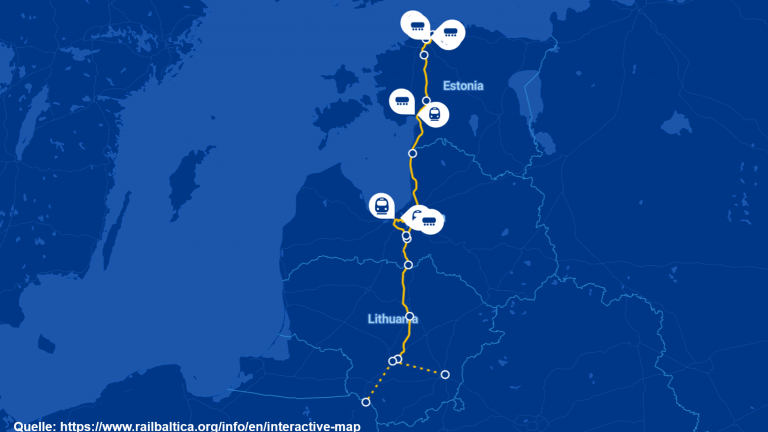
10:30 AM – 12:00 PM
Rail Baltica is a new railway line under construction, which will run from Warsaw via Kaunas and Riga to Tallinn, with a connection to Helsinki by ferry or tunnel. Five EU Member States are involved in the project: Poland, Lithuania, Latvia, Estonia and Finland. The project holds exciting opportunities for the railway industry in Germany, particularly in the infrastructure sector in the current initial phase.
In addition, Rail Baltica is characterised by a modern procurement culture that places sustainability and European added value at the heart of procurement.
The line will have a total length of 870 km, the EU's target speed is 240 km/h, and 160 km/h on upgraded sections. The planned journey time between Tallinn and Riga is expected to be just under two hours when completed, and two hours between Riga and Vilnius. The total construction cost is estimated at € 5.79 billion, of which the European Union is expected to contribute € 4.634 billion, as Rail Baltica is the priority project of the Trans-European Networks V 27.
Opportunities for cooperation for the railway industry in Germany
Against this background, the German Association of the Railway Industry (VDB) is organising the online seminar "Rail Baltica - the project of the century: Opportunities for the railroad industry in Germany". In a joint discussion opportunities for cooperation with the railway industry in Germany are to be identified.
Please note
The participation is free of charge. You will receive the dial-in data after your registration promptly after the event. The online seminar will partly be held in English.
Registration
If you are interested, we kindly ask you to register via e-mail to Ms. Silvana Vogel vogel@bahnindustrie.info by 1 September 2020.
